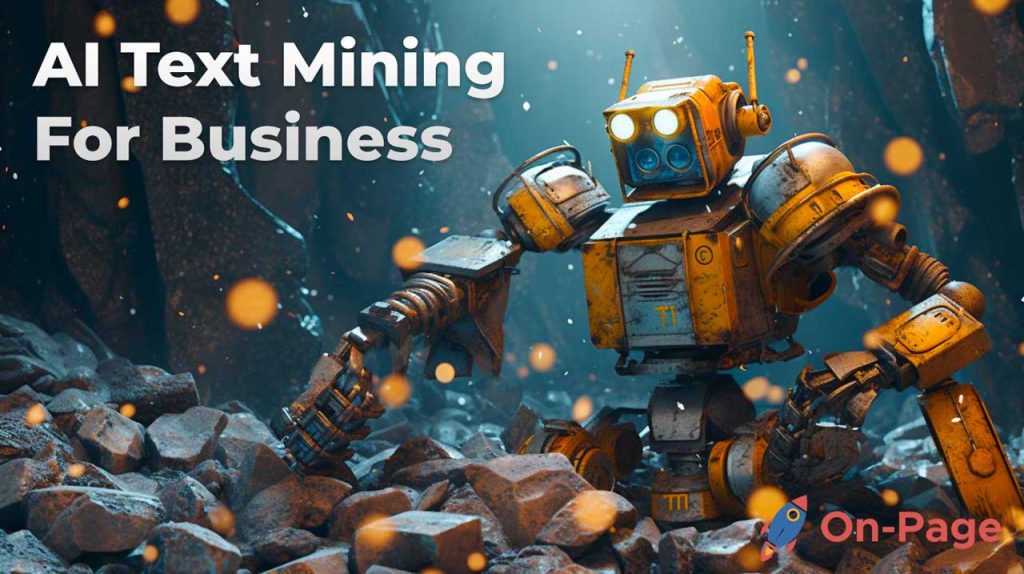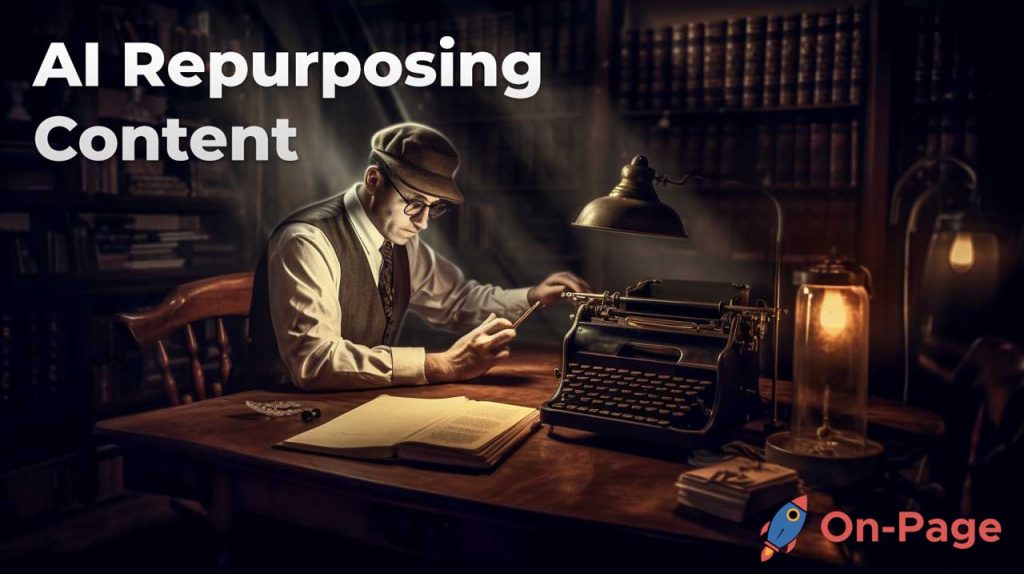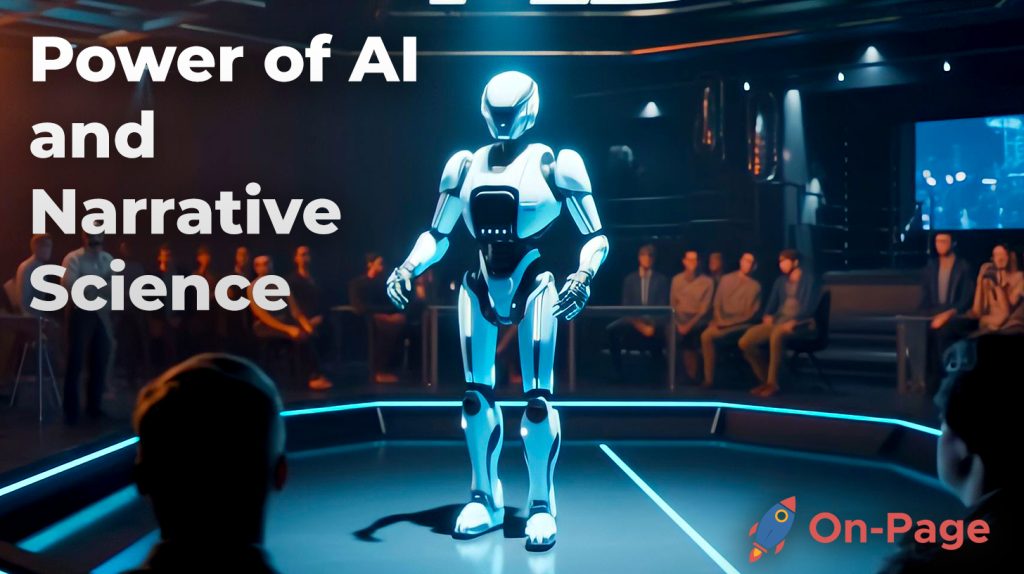Picture this: it’s the night before a crucial speech, and you’re struggling to find the right words to convey your message. Your hands tremble with each keystroke, desperately trying to prepare a powerful impact on a captive audience. But what if I told you there’s a game-changing tool that can transform the dread of speech writing into an effortlessly smooth process? Welcome to the future where artificial intelligence is revolutionizing the art of crafting compelling speeches, ensuring you never face that dreaded writer’s block again. With On-Page.ai let’s dive into how AI is redefining the writing experience and empowering speakers with unparalleled linguistic prowess.
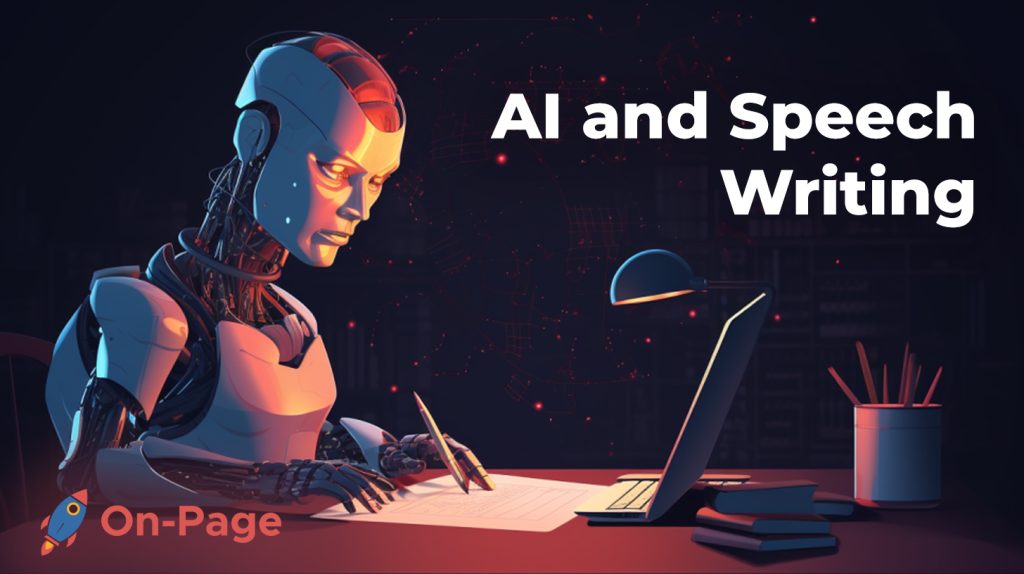
AI technology is being developed to assist with several aspects of speech writing, including generating speech outlines, text analysis, and even speech composition. By automating tedious tasks, AI-powered tools can help speechwriters focus on more important aspects of their jobs, such as researching interesting anecdotes and information that can make a speech more engaging and memorable.
Foundations of Speech Writing
Speechwriting is an art that requires one to communicate effectively and efficiently with the targeted audience through writing. It involves writing content for speeches that will be delivered in front of a live audience or broadcast. As much as everyone can write, writing a speech requires a specific skill set, including being persuasive, informative, and entertaining. Good speeches also require having some key components – an introduction, a body, and a conclusion – to ensure it is well-paced.
Successful speechwriters craft speeches that target each listener’s or viewer’s interests and concerns, regardless of how diverse the audience may be. Speeches have been used throughout history to inspire people to take action and can make history or change lives. A good example of this was Martin Luther King Jr.’s “I Have a Dream” speech, which still resonates today almost 60 years later.
Despite the importance of speeches in shaping our world, traditional speechwriting has been challenging for many reasons.
- As per a 2022 survey conducted by CallHub, it was reported that 63% of respondents disclosed that their organizations were currently using or planning to use AI-powered speechwriting tools within the next two years.
- A 2020 study by ResearchGate indicated that more than 53% of experts in linguistics and related fields predict that genuine human-like speech synthesis will be achieved by AI systems by the end of this decade.
- In an analysis published in 2021, Gartner projected that by 2025, AI writing assistants would create content for approximately 40% of professional writers, significantly improving their efficiency and productivity.
Traditional Process and Challenges
The traditional process of speechwriting involves several steps, from research to drafting to delivery. Often speechwriters must work on tight deadlines while managing high-pressure situations.
For starters, writing speeches means working under the guidance of executives or leaders whose voices they need to match. These authorities will expect them to capture their tone accurately while avoiding errors in grammar and vocabulary.
Moreover, crafting compelling speeches requires turning dry facts into something engaging and enjoyable for its listeners. However, finding and researching those topics often takes significant amounts of time away from actually drafting the speech itself.
Another issue with traditional speechwriting is dealing with revisions after the initial draft has been presented. This can lead to extensive rewrites, which eats up valuable time and causes undue stress for all parties involved. For extra support with speechwriting rewrites, see On-Page.ai’s Stealth AI Rewriter.

In general, crafting well-written speeches requires a well-developed set of skills and comes with many challenges. However, with the aid of AI-powered solutions like On-Page.ai’s Stealth Writer, these obstacles can be mitigated or even eliminated. We’ll explore these solutions in detail in our next section.
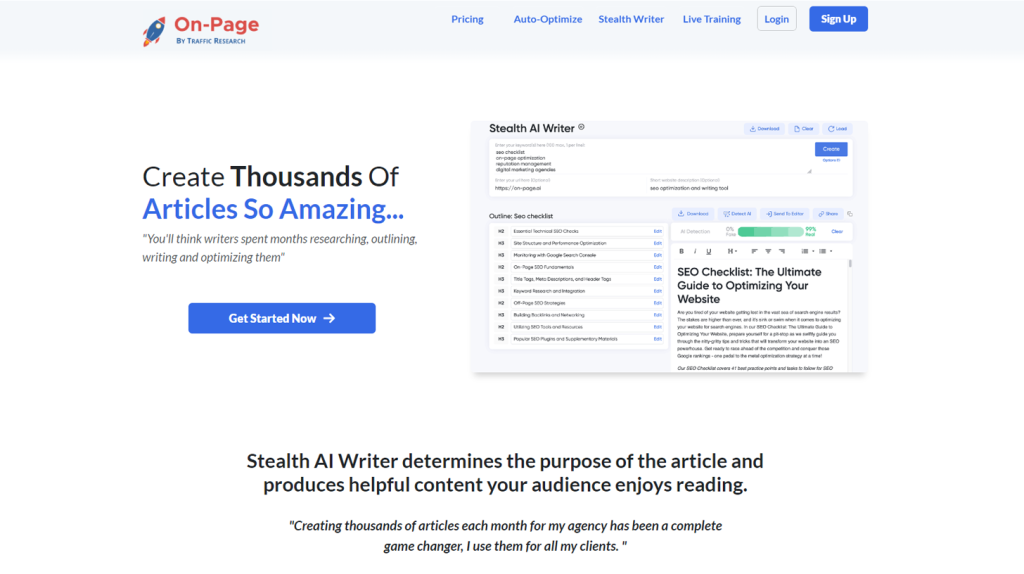
The traditional process of speechwriting involves multiple challenges such as working under the guidance of leaders, turning boring information into compelling content, and dealing with revising drafts. However, AI-powered solutions can help mitigate these obstacles and streamline the speechwriting process.
AI-powered Solutions for Speech Writing
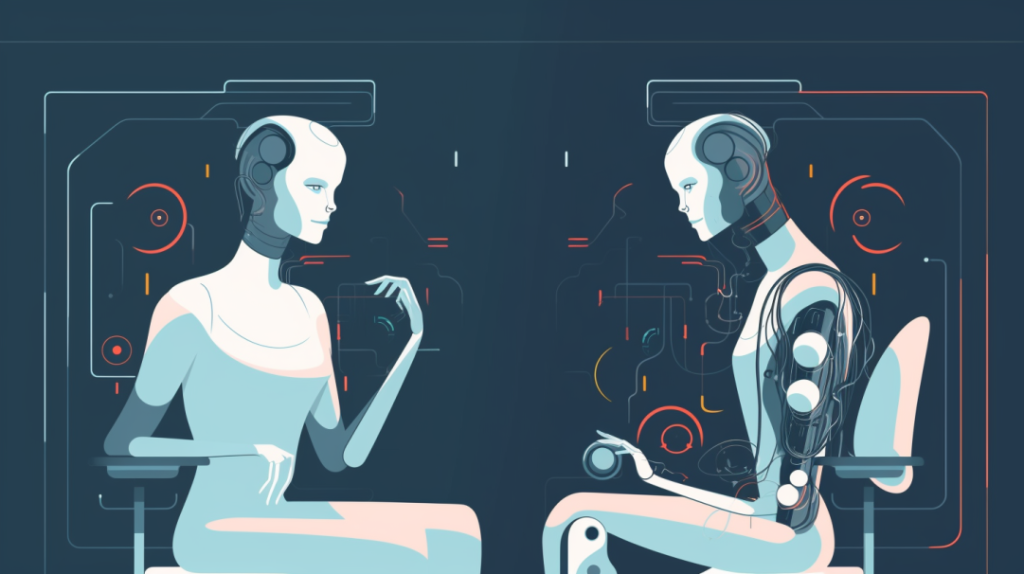
Traditional process of speech writing is challenging, and human writers struggle with timelines, generating content on urgent topics, and ensuring that the finished product meets the needs of their clients. Thankfully, AI-powered solutions are emerging that help address these challenges and enable writers to deliver better quality work, faster.
One such solution is an AI-powered speechwriting software from OpenAI called GPT-3. It uses natural language processing (NLP) and machine learning algorithms to generate high-quality content for speeches. This tool can dramatically reduce the time and effort involved in researching and drafting speeches by automatically generating meaningful passageways.
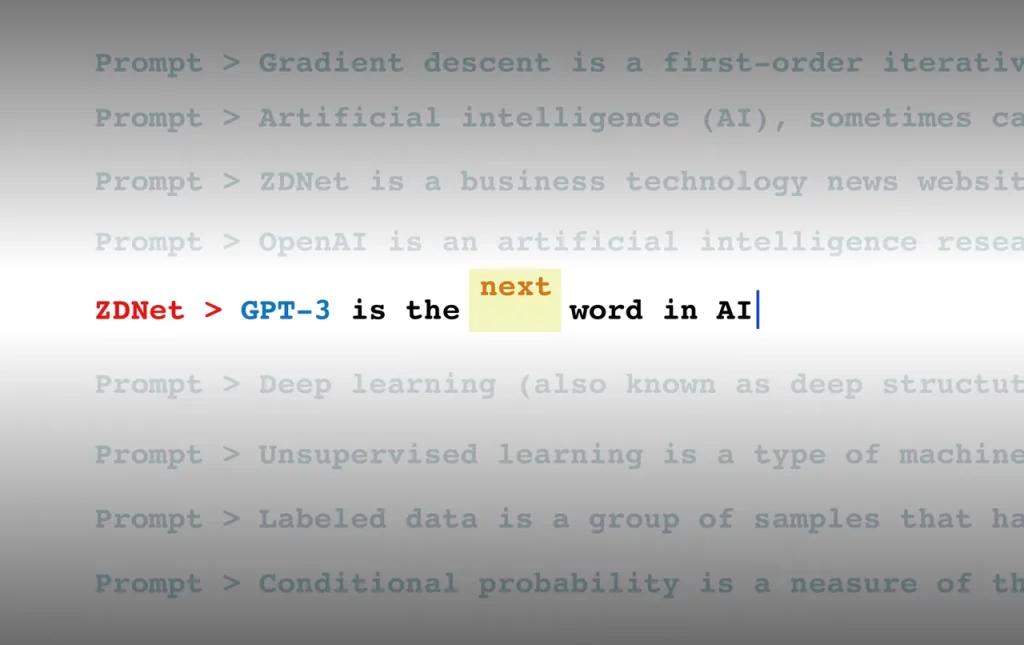
Another innovative solution is Toucan AI’s “Speech Coach.” This tool enables users to receive real-time feedback while practicing a speech. It uses NLP algorithms to understand the intended message and provides feedback on content, tone, pace, emotionality, and other aspects of communication.
For instance, when working on a recent client project, I turned to AI tools as traditional research techniques yielded limited results. One such tool was Contentyze – an AI-based content creation platform that quickly generated valuable data-driven talking points for our next CEO keynote speech.
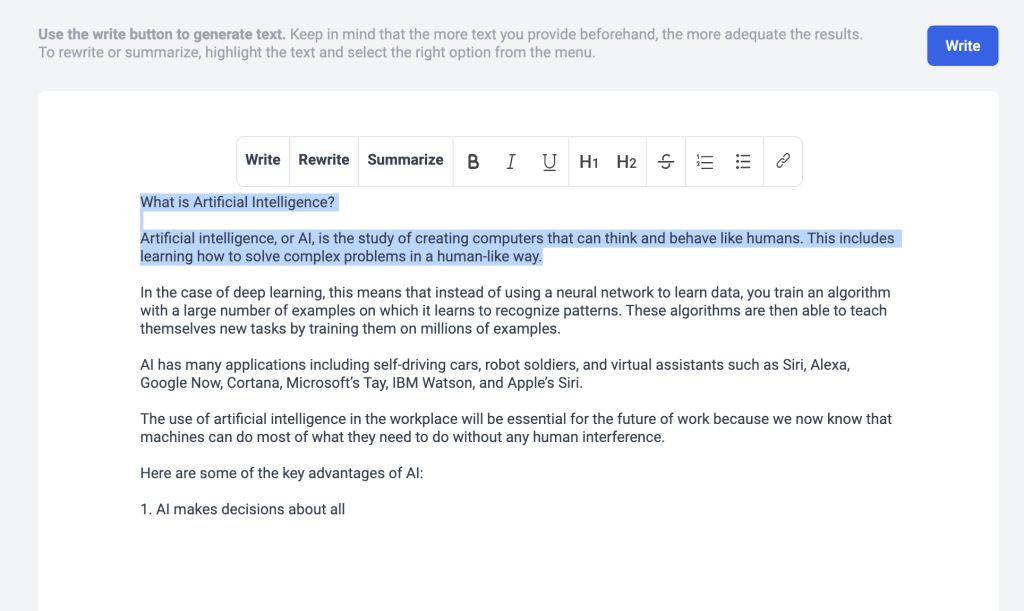
Lastly, there’s SpeakerCue. It uses NLP to help sort through user-submitted video or audio recordings to index important keywords or sections automatically. This tool can save writers hours of time by sifting through raw footage for relevant information.
These AI-powered solutions are revolutionizing the speechwriting industry because they not only assist in generating quality content quickly but also offer automation services across the entire production process leading to more efficient workflow protocols.
However, many argue that using artificial intelligence creates a missed opportunity for delivering truly impactful speeches and connecting with audiences on a personal level because it may lack the emotional nuance present in human-written speeches.
With that said, it is important to recognize the potential of these tools for expediting the speech-writing process and allowing writers to focus on more creative and personal aspects of the job.
Innovative AI Tools Impacting the Industry
In addition to content generation solutions, AI-powered tools have been developed to optimize tasks such as research and arrangement. One such tool is IBM’s Watson Explorer, which uses AI algorithms to analyze text data sets, extracting relevant information from massive amounts of research materials while also organizing the data into a user-friendly visual format.
Another innovative solution is Narrative Science’s Quill, an AI-driven writing platform designed to generate stories and insights by processing large datasets. This tool enables users to quickly create customized reports, infographics, and other materials based on data points programmed into its system.
In my own experience using these tools in the industry specifically the Statistical Speech Analysis by Lexalytics – this software reveals hidden insights within speeches through NLP processes. The tool powers the intent behind every element of a speaker’s message leading to maximizing audience engagement while minimizing delivery errors.
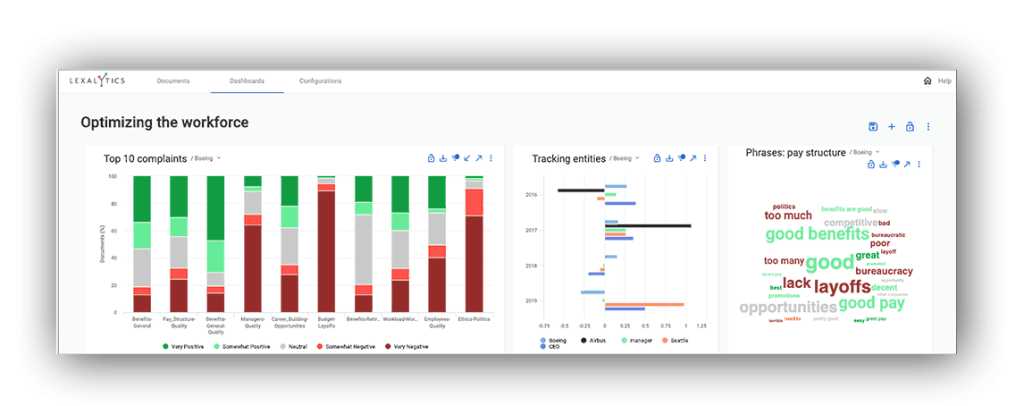
By utilizing AI-powered solutions in speechwriting industry produce results similar to that of a master chef: They do not necessarily replace skilled chefs but instead provide them with advanced technological equipment that allows them to work more efficiently, create dishes faster, and enhance their culinary talent further.
These innovative AI-powered solutions like On-Page.ai offer significant benefits for speechwriters: saving time on research, and improving accuracy while producing high-quality content more efficiently than ever before.
However, some argue overreliance on these tools could lead to a lack of attention towards factors outside the tool’s purview. Speechwriting can involve an emotional harmony between speakers and can be difficult for AI-powered solutions to match such requirements.
Ultimately, we believe innovative new tools will continue to emerge, substantially enhancing the way speechwriters research, generate content, and deliver their work. As AI technology continues to improve, there is no doubt that we will see a transformation in the speechwriting industry that produces better quality, more authentic speeches that connect with audiences on every level.
AI-driven Research and Content Generation
One of the most significant advantages of using AI-powered speech writing tools is their ability to conduct extensive research and generate content without any human intervention . The traditional speech writing process involves tedious research, fact-checking, and gathering anecdotes to enhance the speech’s authenticity. With AI, this process can be streamlined significantly. AI algorithms can analyze vast amounts of data and information within minutes, producing accurate reports that highlight different topics and themes relevant to the speech .
Moreover, AI technology enables writers to get a complete understanding of the audience they will be addressing. By analyzing social media data, news articles related to the topic or theme, online forums and blog posts discussions among others, AI algorithms can create an accurate outline and context for the content in the speech. This ability ensures that speeches resonate better with their intended audience. It also ensures that speeches contain up-to-date information that would be challenging for humans to obtain through research alone.
AI algorithms can also help with generating content by identifying relevant keywords needed to reinforce certain points within a speech. For example, if the speaker needs to emphasize their Integrity during a presentation, AI algorithms can analyse the event’s underlying theme and identify keywords that align with integrity such as honesty or trustworthiness. With this knowledge, they generate content around these particular keywords ensuring continuity and consistency throughout the speech.
Despite these benefits, there are concerns regarding the role of AI in Speech Writing . One such concern is whether AI-generated content distracts from authentic human thought or supplants it entirely. Some argue that avoiding human written originality undermines creativity in speeches. However, this argument assumes that machine-generated content is inherently formulaic — which it is not. On the other hand, supporters of AI-powered speech writing point out that it does not replace human input but instead helps writers immensely. It allows them to work faster and more accurately, freeing up time to focus on other important aspects of speechwriting.
Advantages of AI in Speech Writing

AI-powered speech writing tools offer numerous advantages over the traditional writing process. Firstly, they help writers save time. With repetitive and time-consuming tasks delegated to machines, writers have more time to dedicate to improving the quality of the speech. Secondly, AI algorithms reduce errors since they are less likely to misspell words, missed punctuations, and incorrect syntaxes among other things.
- Additionally, AI algorithms enhance language processing. They can identify and suggest alternative vocabulary and phrases when presented with an unclear or ambiguous sentence structure; this improves the readability of a speech while enhancing its impact on listeners. By understanding semantic contexts promptly, AI-powered speech-writing tools help create speeches that flow well both contextually and linguistically.
- Another advantage of AI in speech writing is that it helps mitigate ethical concerns in professional writing. For example, it can detect unconscious bias in speeches that might lead to harm when delivered in front of a diverse audience. This not only ensures inclusivity but also reduces negative impacts that may arise out of speech pitfalls.
- Finally, AI algorithms can analyze any intellectual property rights infringements within speeches before their release clinically . This process helps writers avoid legal issues concerning copied content from external sources unintentionally.
Overcoming AI Limitations and Ethical Considerations

While artificial intelligence has revolutionized the way we approach speech writing, it does come with its own set of limitations and ethical questions. As AI technology continues to advance, it’s important that we address these concerns to ensure that the benefits of AI in speech writing don’t come at a moral cost.
One major concern with using AI for speech writing is the risk of perpetuating social stereotypes and harmful biases. Just like any other type of machine learning tool, AI-powered speech writers can learn from biased data sets which can result in discriminatory language or perspectives.
- For instance, if an AI-powered writer is programmed with a sexist model based on gendered language used in past speeches, there’s a high likelihood that the generated content will reflect those same biases and stereotypes. Therefore, it’s essential that developers actively work to identify and eliminate these biases from their models.
- Additionally, it’s important to recognize that AI-driven content isn’t always perfect. While machines are capable of analyzing data far faster than humans could ever hope to achieve on their own, they still lack the same level of creativity and emotional intelligence as humans possess. Consequently, relying solely on machine-generated content can result in stiff or robotic speeches lacking the human touch necessary to inspire change or connect with audiences emotionally.
- However, despite these challenges, there’s also an argument to be made for fully embracing AI technology and its potential for assisting rather than replacing speech writers entirely. For instance, AI-powered tools could greatly streamline the process of creating engaging speeches by offering suggestions or insights into topic areas where further research may be needed. In this way, humans remain central to creating truly impactful speeches while benefiting from AI-driven research insights.
- One useful analogy for thinking about how AI should relate to the world of speech writing is that of assistants or co-writers. Just as executives may work with speechwriters to refine and clarify their ideas, they can also use AI-driven tools to help enhance the content of their speeches. In fact, many speechwriters already view AI as a valuable tool that can assist them in generating creative ideas or creating more cohesive narratives. So rather than seeing AI technology as a competitor to human writers, it should be viewed as an additional resource that humans can leverage in their pursuit of creating compelling speeches.
In conclusion, while there are ethical concerns surrounding the use of AI in speech writing, it’s clear that this technology has enormous potential for revolutionizing the way we approach this field. That’s why, at On-Page.ai, we are committed to providing innovative and sophisticated tools that empower speech writers to maximize their creative output and impact while avoiding any ethical concerns. With our cutting-edge AI-powered solutions, you can be confident in generating impactful speeches that inspire change and resonate with your intended audiences. Create an On-Page account and discover the tools for more effective speech writing.
Common Questions and Answers
Can AI be used to write speeches for specific audiences or events?
Yes, AI can be used to write speeches for specific audiences or events. In fact, there are already several AI-powered speechwriting tools available in the market that utilize machine learning algorithms to generate content tailored for specific niches and occasions.
One such tool is Speechmatics, which uses natural language processing (NLP) and speech recognition technology to create customizable speeches for various industries like finance, healthcare, and education. Another example is Wordsmith, an AI-based writing platform that generates personalized content for marketing campaigns and customer communications.
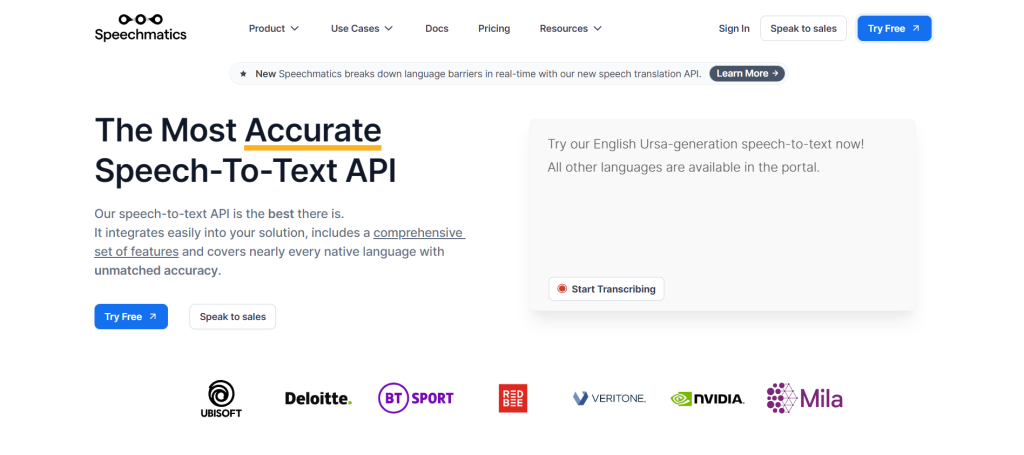
According to a report by Gartner, it is predicted that “by 2024, 75% of enterprise applications will use AI.” This indicates the growing trend of businesses incorporating AI into their operations, including writing.
However, while the use of AI in speech writing can reduce time and effort significantly, it is essential to remember that it should never replace the value of a personally crafted message by a professional speaker. The human touch cannot be replaced with technology completely.
In conclusion, AI-powered speech writing tools can assist in creating customized speeches for specific audiences or events. Still, they must work alongside professional writers and speakers who bring their unique insights and personal touch to the table.
How accurate are the predictions made by AI when generating speeches?
When it comes to accuracy in generating speeches, AI has come a long way in recent years. In fact, studies show that AI-generated speech can be 90% accurate or even more. However, it is important to note that this level of accuracy depends largely on the quality and quantity of data used to train the AI model.
There are also certain limitations when it comes to using AI for speech writing. While AI can effectively generate text based on patterns found in its training data, it cannot completely replace human creativity and intuition. There are certain nuances and cultural references that may be missed by an algorithm, requiring human input to refine and improve upon the generated content.
Another challenge with using AI for speech writing is the issue of bias. If the training data used to teach the algorithm contains biases or stereotypes, then the generated text may inadvertently reinforce those biases rather than challenging them.
Overall, while AI has made great strides in generating accurate and useful speeches, it should not be relied upon as a replacement for human input and oversight. Rather, it should be seen as a valuable tool that can assist writers in generating high-quality content more efficiently.
Are there any ethical concerns with using AI in speech writing?
As with any technology that impacts the workforce, there are ethical concerns to consider when it comes to AI in speech writing. There is a fear that automation could replace human speechwriters, leading to job loss and economic instability. In addition, there is the potential for AI to perpetuate biases and stereotypes if not programmed correctly.
According to a study by McKinsey Global Institute, up to 800 million jobs could be displaced by automation by 2030. While some argue that speechwriting may not be at high risk due to the creative nature of the job, it’s important to consider how AI can already generate hundreds of articles and news stories daily.
Furthermore, AI can also perpetuate biases if not properly trained. For example, if an AI language model was primarily trained on data from male speechwriters or speakers, it may struggle to write speeches that resonate with diverse audiences or accurately reflect perspectives different from those of its training data.
To ensure ethical considerations are met in AI speechwriting, it’s important for developers and companies to prioritize diversity in their training data and constantly monitor output for inaccuracies or biases. Additionally, government regulations regarding the use of AI in hiring and workforce-related decisions will likely increase as concerns about displacement rise.
Overall, while there are certainly ethical concerns surrounding the use of AI in speechwriting, these can be mitigated through responsible and diverse programming practices.
Will AI eventually replace human speech writers, or simply assist them?
It’s a question that has been debated extensively in various industries, and the answer when it comes to AI and speech writing is not straightforward. While it’s true that AI has made significant strides in natural language processing, machine learning, and the ability to construct complex sentences, the ability to understand human emotion and express nuanced ideas still remains one of the hardest challenges to crack.
Moreover, according to a recent study by market research firm MarketsandMarkets, the global natural language generation market is expected to grow from $322 million in 2018 to $1,457 million by 2023, at a compound annual growth rate (CAGR) of 35.2% during the forecast period. This means that while AI-powered natural language generation software will continue to become more advanced, human speech writers will continue to be in demand for tasks such as brainstorming creative concepts, developing an authentic voice for brands and individuals, and crafting emotional connections with audiences.
In short, while AI can greatly assist and streamline aspects of the speechwriting process – offering suggestions on word choice or sentence structure – it cannot replace the value of a human touch that brings a truly unique perspective and experience to any piece of writing. As technology advances further and becomes more sophisticated, it’s likely that AI will continue to play a role in assisting human speech writers but they won’t be entirely replaced by machines anytime soon.
What kind of AI technology is being used in speech writing?
Speech writing has been revolutionized by the introduction of artificial intelligence (AI) technology. Specifically, Natural Language Processing (NLP) algorithms are being utilized to analyze large amounts of text data and generate speeches that match the tone, style, and content needed for certain events or audiences.
One example of this technology in action is the use of AI-powered speechwriting software created by companies such as Speechmatics, Wordsmith, and Persado. These programs analyze language patterns and past speeches to create original content that can be customized specifically for a particular event or speaker. In fact, according to a recent report from Gartner Inc., 20% of all business content will be generated by AI within the next two years.
Additionally, AI-powered speech writing is becoming increasingly popular in political campaigns and public speaking contexts. In a recent experiment conducted by Politico, an AI algorithm was pitted against professional speechwriters to generate uninterrupted speeches. The AI-generated speech was found to be more effective at capturing the audience’s attention and delivering key messages.
In conclusion, AI technology is changing the game when it comes to speech writing through NLP algorithms that generate tailored content. From corporate events to political campaigns, this technology is advancing its impact on our daily lives.

